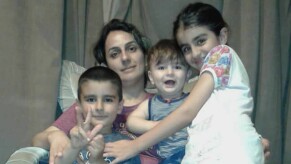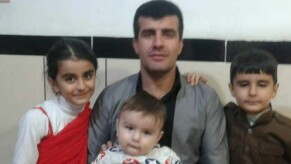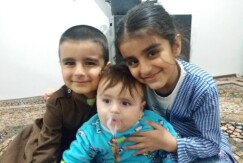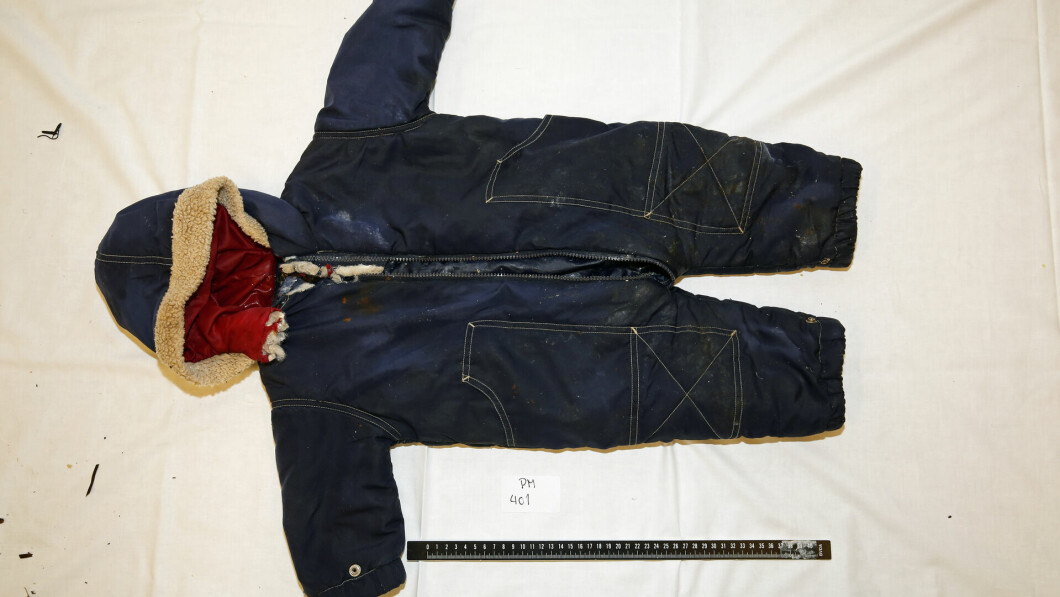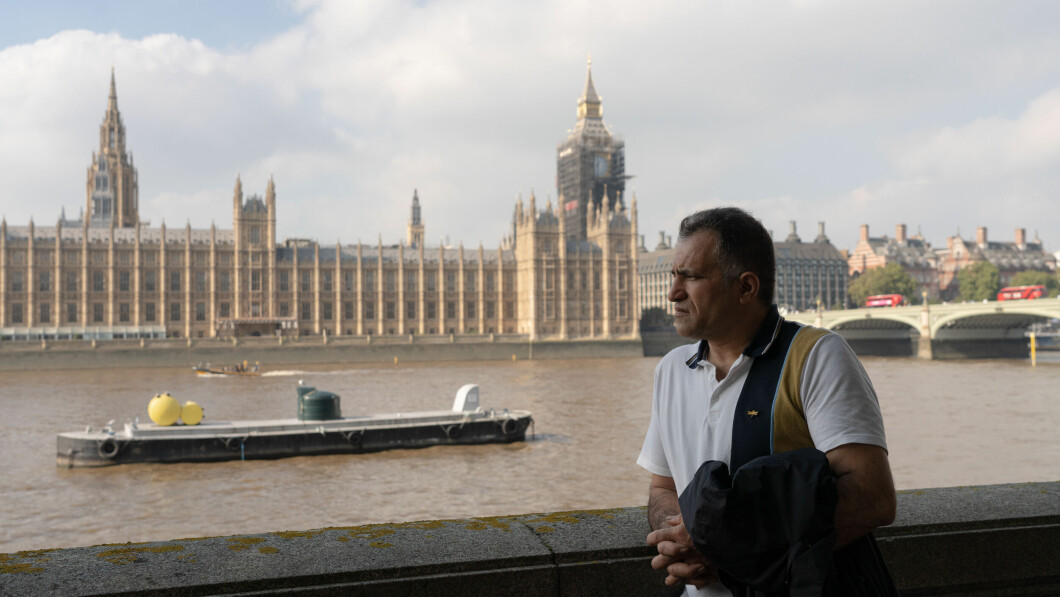Abraham took us to the British port city of Dover. He will show us where he first landed in Britain. He didn’t come here with several ferries running in shuttle traffic across the English Channel, but in an inflatable boat full of refugees. He hasn’t been by the sea since he got here about a year ago. Bad memories come back.
Abraham took us to Dover, where he landed in Britain. Photography: Halaqut Mustafa
You get the same feeling when you were about to drown. You feel that the sea is pulling you towards it. Now I have that feeling, Abraham says when we hit the beach in Dover.
The fear is still there after Ibrahim tried to cross the canal for the first time.
Honestly, I’m scared now! Ibrahim says I feel calm now, if there are too many waves, then I can’t stand here.
He had a bad feeling and was afraid
But the waves and bad weather on October 27 last year. However, a small, fully loaded excursion boat left the shore in France.
– There were 22 people on such a boat, says Abraham, and he points to a 22- to 23-foot-long pleasure boat located in the port of Dover.
Mama Shiwa with her youngest son Artin and siblings Anita and Armin. Photo: private
Abi Rasoul with Artin and his brothers Anita and Armin. Photo: private
Also on board were one-year-old Artin and his family, Rasool’s father (36), his mother Shewa (33), and his two brothers Anita, 9, and Armin, 6. The family, like Ibrahim, traveled from their hometown of Sardasht in Iran in hopes of creating a better life in Britain. On that day they had to complete the last leg of the long and perilous journey.
– I looked a lot at the little boy, and thought I wish nothing had happened. But I had a bad feeling, I was afraid. Deep down Ibrahim told us what we were doing was wrong.
Ibrahim was right. After a short time, the fully loaded boat had problems in the waves. The boat started sucking up the water, and the man driving the boat decided to turn around and turn back. That was when an error occurred.
– Try to turn the boat towards France. Then a wave hit the boat and it capsized, and that was the case. Most of them fell into the sea, and the current took them in different directions, Ibrahim says.
He was trapped in the air pocket under the boat
But little Artin and his family were caught under the boat. They were seated inside a superstructure, and were towed from below as the boat turned.
The family, it was under the boat in a superstructure. There was air and they were still alive. We heard the children crying, and we knocked on the boat and said to them: Do not be afraid, do not be afraid, we are here and it will work out, take it easy. We knocked two or three times on the hull so they knew we were there and didn’t panic.
The accident occurred shortly after they left France. Ibrahim and the others who clung to the boat could see the buildings on the French side of the canal lying in the icy waters.
– Please help us! They were dying! We couldn’t say it in English, so we shouted in Kurdish and Persian, the only languages we could, Ibrahim says, as we cried.
I tried to save the sister
After a while, a boat appeared. The crew alerted the French Coast Guard and Rescue Service. But before they came to the rescue, another boat appeared. The crew began to help them climb out of the sea.
Ibrahim grabbed the hand of Anita (9 years old) and tried to save her, but she also drowned. Photo: private
Ibrahim was the last to board the boat. With him was Artin’s sister, 9-year-old Anita, whom he tried to save.
– I remember she was wearing a red jacket. I held her hand when I was taken on the boat. They thought I only had a red jacket with me on the plane. They were shocked to realize that he was a dead baby in my arms.
The entire Artin family died that day. The little boy was first found three months after the accident, when he floated ashore in Skudeneshavn on Karmøy.
In this coat, the remains of Artin were found on New Year’s Day outside Skudeneshavn Photo: Police
The second time Ibrahim reached the goal
Although Abraham saw an entire family disappear into the sea, he did so a few days after his new attempt to cross the English Channel.
He says the human traffickers threatened to kill him, who sent them when things went wrong.
– I had to do that. There was no other way out. If I stay, the smuggler will kill me. Ibrahim says the risk was 50/50 to survive if you tried to cross to the other side.
The second time, he and those on the boat were caught by the Coast Guard upon their arrival in British waters.
I still feel like he’s running away
Today, Ibrahim has spent a year in London soon, and is awaiting an answer on whether he can stay or whether he will be fired again. Even though he had reached the target, he still felt like he was on the run.
Today Ibrahim lives in London and is waiting to be told if he can stay in the UK. Photography: Halaqut Mustafa / TV 2
– I feel like I’m still sitting in the boat and the waves are taking me. It never ends. I have many beautiful ideas on weekdays. Suddenly I’m sitting somewhere laughing for no reason. Then I feel like I’m dead.
Telling us the story costs Ibrahim a lot, but he wants others who want to embark on the perilous journey to know what they are facing. He learns from his history and the history of Artin.
We ask him what he will say to others who want to embark on the same journey towards Europe.
-No. I would never advise anyone to throw themselves into flames in this way, risking their lives at sea. Many called me from home and asked about it, and I told them: “No, no, this is dangerous.”

“Organizer. Social media geek. General communicator. Bacon scholar. Proud pop culture trailblazer.”



